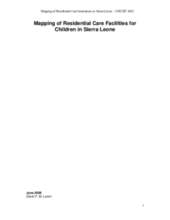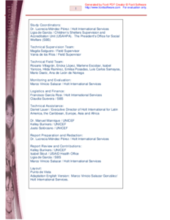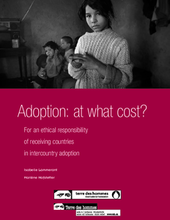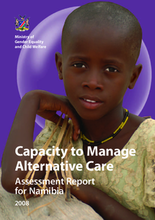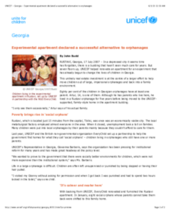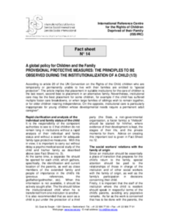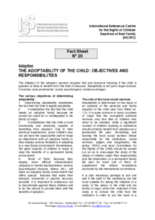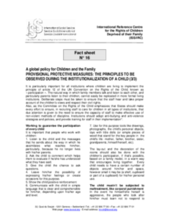Displaying 201 - 210 of 233
Mapping of existing facilities caring for children in residential capacity for use in developing child protection standards
Evaluation of need for systemic strengthening and partnering to ensure protection of children without parental and children involved with ICA
Assesses the causes and realities of children living in institutions in Guatemala with recommendations for systemic reform.
A comparative study on the ethical responsibility of receiving countries of intercountry adoption.
This report prepared for the Ministry of Gender Equality and Child Welfare (MGECW) with financial support from UNICEF Namibia assesses the country’s capacity to manage alternative care systems for children.
Analyzes the care of children without parents in the contexts of current theoretical and policy formations and attachment theory with kin and non-kin caregivers.
In Georgia, UNICEF and EveryChild have teamed up to place children in need of alternative care in small, supervised apartments as an alternative to orphanages.
A brief 2-page overview of what steps should be taken if and when a social worker or other community worker admits a child to a residential institution.
A 2-page fact sheet that discusses the conditions under which a child may or may not be eligible for adoption. Discusses legal implications and the role of local social services.
A brief 2-page document that highlights the importance of child participation, post care planning, guarding against abuse, and connecting residential institutions with the surrounding community.

